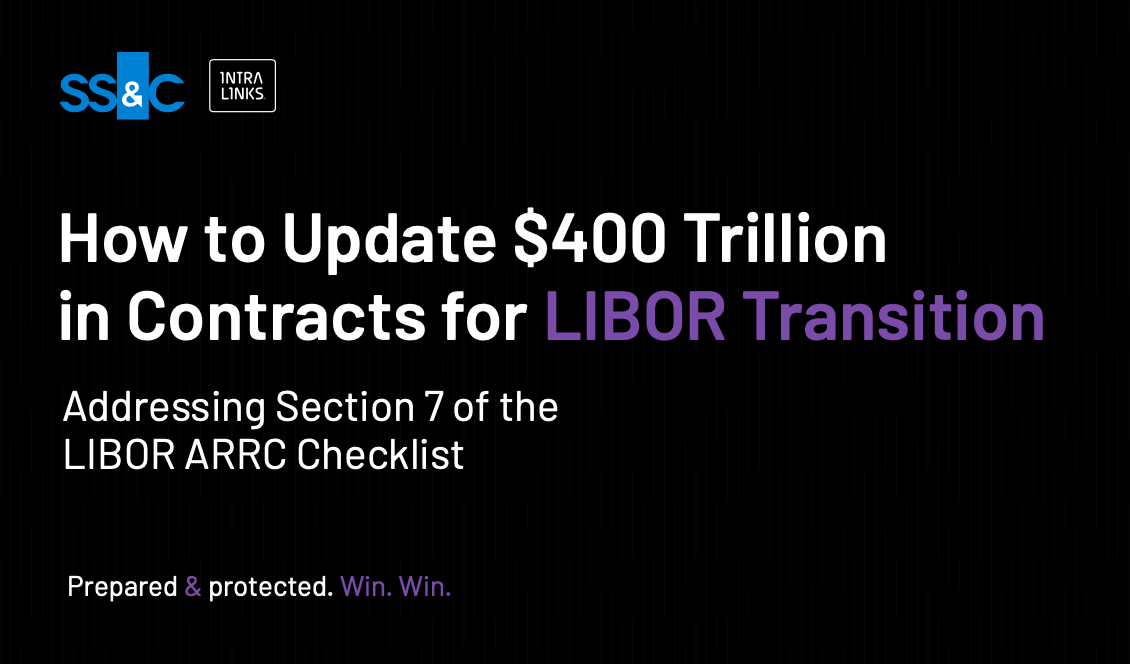
Introduction:
LIBOR, or the London Interbank Offered Rate, referred to by many in the financial industry as “the world’s most important number,” will be phased out on December 31, 2021. It’s an event with major reverberations throughout the financial industry with close to $400 trillion in loans, securities and derivatives affected. Yet many institutions that will be affected are not preparing.
There are many risks to doing nothing. For borrowers, their loan terms could become dated or faulty. (1) They may incur increased financial costs or experience cashflow fluctuations. For investors in LIBOR- based debt instruments (including floating rate debt, bank loans, LIBOR-linked derivatives, some asset- backed securities), the value of their investments may become unclear thus harder to sell or trade.(2) And for banks that issue debt or loans they open themselves up to potential regulatory fines, litigation, negative press, reputational damage and loss of business.